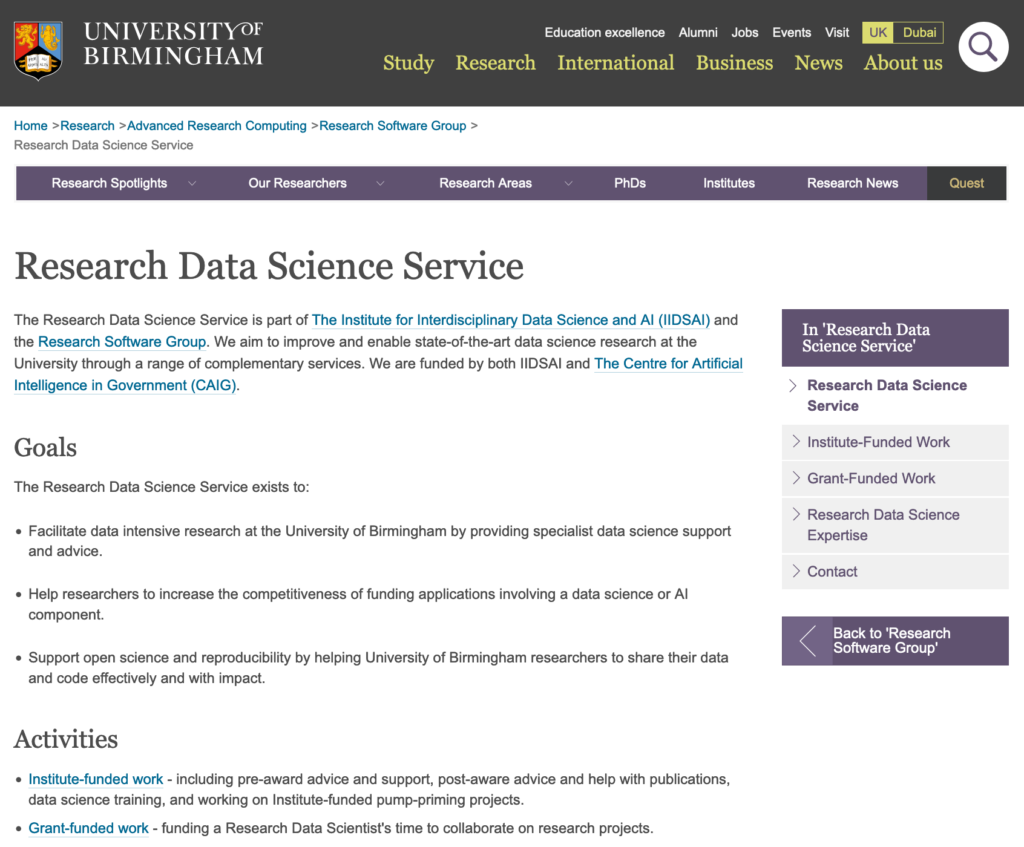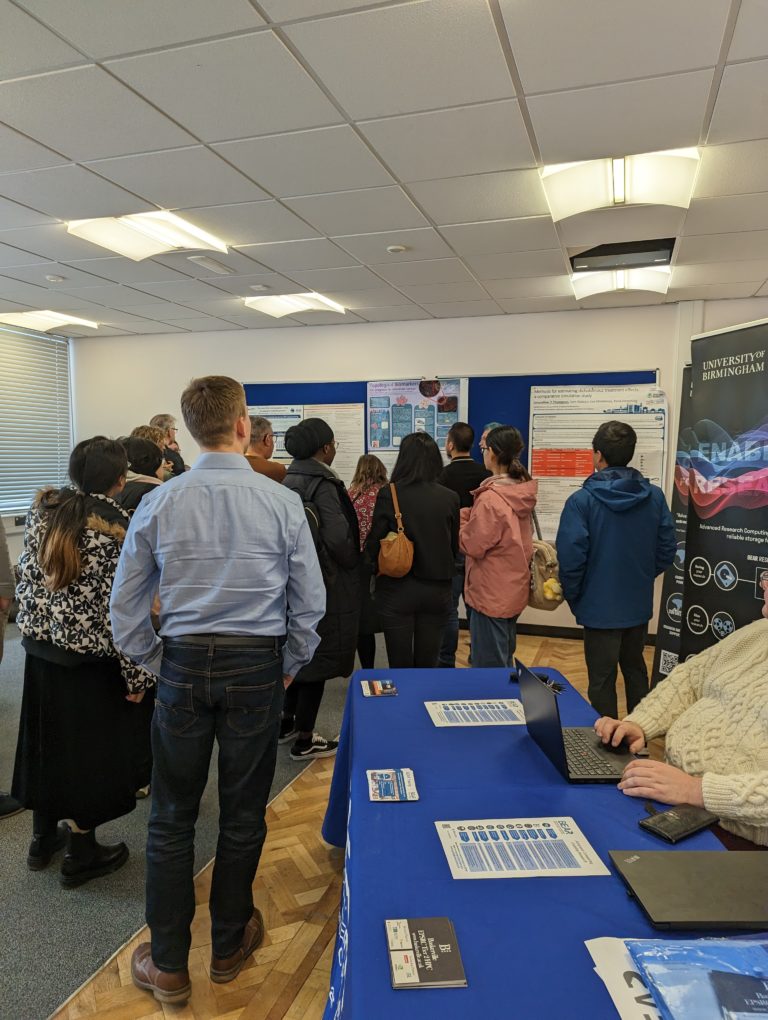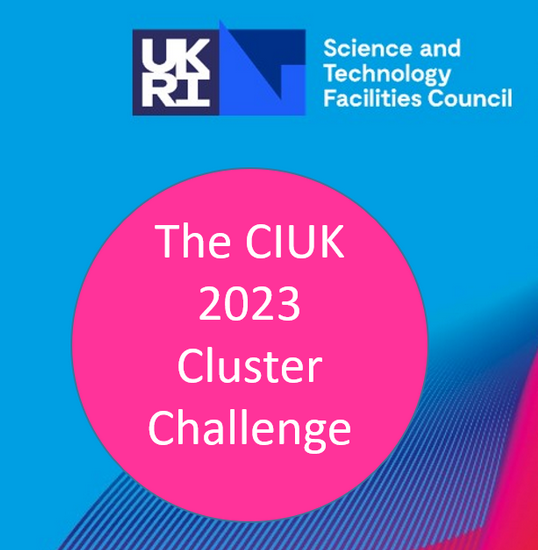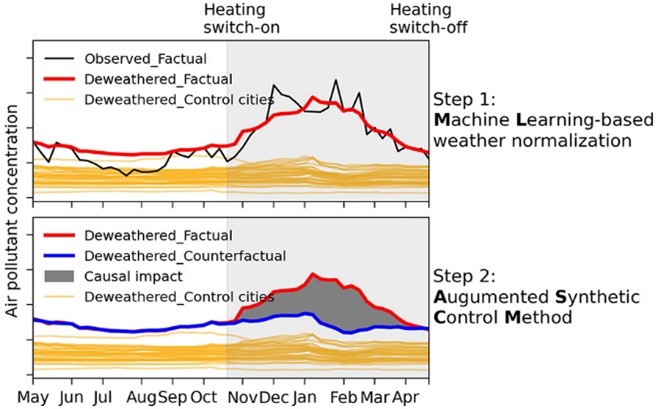Welcome to the BEAR Newsletter, bringing you the latest news from the BEAR team (Birmingham Environment for Academic Research), as well as other relevant computing and data-related news from both within the University of Birmingham and outside.
Earlier in the month some of the BEAR team were out at Computing Insight UK, where as well as attending talks, we hosted a stand showcasing our Baskerville Tier 2 national supercomputer. Two teams from our BEAR Challenge were also representing the university in the national Cluster Challenge, read below to find out how they did!
We wish all our BEAR users a very Merry Christmas and hope you have a good break from work over Christmas. If you’re looking for something computing-related to keep you occupied, then take a look at the Advent coding challenge, with a new coding puzzle available each day.
Read below to find out more BEAR news:
- BEAR maintenance update
- New Research Data Science service
- BEAR Conference – call for abstracts
- UoB Cluster Challenge team success at CIUK
- Apply for time on Sulis (Tier 2 HPC)
- Training workshops
- Intranet survey
- Free workshops & drop-in’s for social science researchers – UK Data Service
- Case study on using BlueBEAR to evaluate air pollution policies
- Virtual BEAR drop-in sessions
BEAR maintenance update

Last week saw the team complete a complex set of tasks over the two day planned Major Maintenance Window. These periods are essential to keep our systems secure, functional and to enable the latest features. Where it’s feasible, we aim to carry out all such work in these planned windows to limit the disruption to the service, though that is not always achievable.
During the recent outage, we upgraded the authentication mechanism for both BEAR and Baskerville, upgraded firewalls and various firmware. We also decommissioned old kit and did some vital housekeeping. We completed a major upgrade to BEAR Data Transfer (from Globus v4 to 5). Updating our HPC scheduler, Slurm, means we are now able to implement reporting of the energy usage of jobs. Importantly and finally, a major achievement was the completion of the migration of all data from the end-of-life storage system to the one recently installed; involving the migration of over 2.4PB of data and 1.2 billion files!
New Research Data Science service

With the appointment of three Senior Research Data Scientists in the Autumn, we are now able to offer a new Research Data Science Service for researchers across the university, in conjunction with the Institute for Interdisciplinary Data Science and AI and the Centre for AI in Government. The service has three main goals: 1) to facilitate data intensive research; 2) help researchers increase the competitiveness of funding applications involving data science or AI; and 3) support open science and reproducibility by helping researchers share data and code. You can find out more about the service on our webpages: https://www.birmingham.ac.uk/research/arc/rsg/rdsci-service/
BEAR Conference – call for abstracts

The BEAR Conference organisational committee is thrilled to announce the continuation of the BEAR Conference with the 13th iteration being held on 23rd & 24th of April 2024! The conference will provide an exciting opportunity for PGRs and staff to present their HPC-related research to other researchers working with HPC from a diverse audience involved in Arts, Engineering, Law, Linguistics, Medicine and Sports. Submissions to present can either be an A1 portrait poster or a presentation (10 or 20 mins). The deadline for submitting abstracts for the conference is 19th January, 2024. Full details are described on the BEAR Conference website. We hope to see you there!
UoB Cluster Challenge team success at CIUK

Two teams from the BEAR Challenge earlier this year, have been taking part in a national Cluster Challenge at Computing Insight UK (CIUK). There were a series of online challenges for our teams – The Compute Cortex and Ctrl-Alt-Delete – culminating in three days of in-person challenges at CIUK in Manchester. Both teams were unable to complete the in-person challenge 5 on day 1 due to graduating from their degrees (congratulations!), but despite this The Compute Cortex team finished in 6th place overall and Ctrl-Alt-Delete were placed 11th. Special congratulations to The Compute Cortex for coming 2nd in the last challenge. Read more about the competition on the CIUK Cluster Challenge webpages.
Apply for time on Sulis (Tier 2 HPC)

As an HPC Midlands+ consortium partner, we have access to the Sulis Tier 2 HPC facility, which provides CPU and GPU resources. The Tier 2 facilities are available when a researcher requires compute resources to supplement those available on BlueBEAR. We are accepting project proposals for the Sulis six-month allocation period that will run from February 2024 to July 2024. For more information, please see the Tier 2 facilities webpage and to apply for time, please contact us via the service desk: ‘Request Access to a Tier 2 HPC System’.
Training workshops

We are busy planning our training workshops for next year, including new workshops such as ‘Advanced use of BlueBEAR’ and ‘Intermediate Research Software Development Skills’. We will advertise new dates in January via this mailing list, but you can also check the BEAR training webpages for updates.
Intranet survey

What do you want from the University intranet? We invite you to help IT Services plan the new University intranet site experience by filling out a quick survey. You can also register your interest in coming to an intranet design workshop early next year.
Free workshops & drop-in’s for social science researchers – UK Data Service

The UK Data Service is providing free workshops on ‘Mapping crime data in R’, which includes sessions on ‘An introduction to GIS and spatial data’ on 13th February and a ‘Live code demonstration’ on 16th February – details can be found in the associated links. They are also offering monthly drop-in sessions where you can get help on computational social science projects, including the opportunity to meet other computational social scientists.
Case study on using BlueBEAR to evaluate air pollution policies

In this month’s featured case study, Bowen Liu, (Assistant Professor in Industrial and Business Economics) explains how he has used our supercomputer, BlueBEAR, to enable his research into evaluating air pollution controls around the world. Bowen ran Machine Learning models on large scale datasets on BlueBEAR to analyse the effectiveness of air pollution policies in both China and Birmingham, getting results in just days, as opposed to months if they had been run on a personal computer.
Virtual BEAR drop-in sessions

We are just holding virtual drop-in sessions in January, but we will be scheduling in-person drop-in’s from February onwards – do get in touch if you would like an in-person visit though. Further details, including how to join the virtual sessions are available on our drop-in webpage. Upcoming dates are also listed below:
- Via Zoom – Tuesday 9th January, 13:30 – 14:30
- Via Zoom – Thursday 18th January, 09:30 – 10:30
- Via Zoom – Friday 26th January, 10:00 – 11:00
- Via Zoom – Wednesday 31st January, 12:00 – 13:00
Missed last month’s newsletter?
Find November’s newsletter here. Sign up to receive the newsletter direct to your inbox by joining our bear-updates mailing list here (UoB login required).
